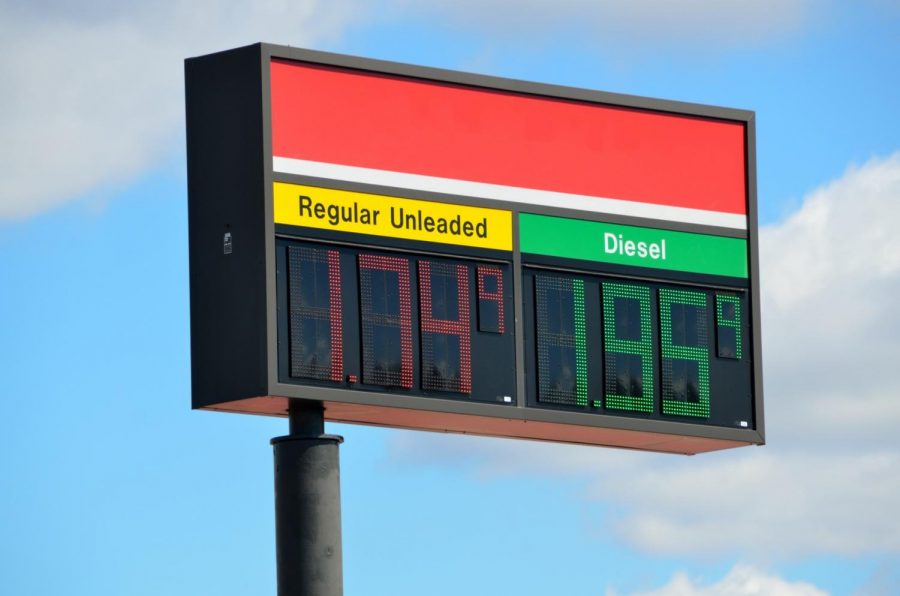36 million Americans Have Lost Their Jobs: The Pandemic Impacts the Stock Market, Gas Prices and Businesses
Paul Brennan on Public Domain Pictures
As a result of fewer people on the road during the coronavirus pandemic, gas prices have plummeted. Creative Commons photo: Paul Brennan on Public Domain Pictures.
May 21, 2020
Businesses both large and small have suffered from the impact of the coronavirus pandemic. Due to shelter-in-place orders from the government, many non-essential businesses have had to shut down, cutting off all profits and causing many to go out of business.
Smaller businesses, even in Menlo Park, have been struggling from their lack of profits. Café Borrone, a popular café near Menlo School, has been asking for donations on their Instagram page. “We are amid many unknowns and we are barely able to hang on to our beloved café. We are humbled to ask for your help,” they wrote in a caption on a post.
Although smaller, family-owned businesses have felt the most impact from COVID-19, larger businesses have also been struggling, such as retail store JCPenney. On Friday, May 15, the 118-year-old company filed for bankruptcy. According to USA Today, JCPenney plans on closing 242 of their 1100 stores in the United States.
Though these issues may seem distant and even insignificant to an average student, the economic struggles during this era will result in consequences for everyone. Menlo students are impacted by the economy as consumers. Because they are consumers, fluctuating prices, the stock market and the unemployment rate is important. The companies that are thriving now are paving the way to the future and will ultimately affect the kind of world we live in, how the economy works and the type of jobs that exist in the future.
Other large businesses that have had to file for bankruptcy include J. Crew, Neiman Marcus and Diamond Offshore Drilling. Businesses that typically have a lot of human interaction, such as retail stores, as well as businesses that rely on people to go out and about, such as the oil industry, have borne the brunt of the pandemic’s impact.
Gas prices have hit a record low due to an extreme lack of demand. According to the U.S. Energy and Information Administration, the national average cost of a gallon of gas was $2.60 in 2019. The current national average gas price is $1.87 per gallon, according to data from AAA, and gas is at its lowest demand since 1968, according to CNBC.
The demand for oil has gotten so low that in late April, oil companies ran out of space to store their crude oil, turning the value of crude oil negative. According to Business Insider, a very large oil company, West Texas Intermediate (WTI), was negative for two days. Since then, oil has started to have value again with today’s WTI price being $32.50 per gallon.
The coronavirus pandemic has also caused stock markets to fluctuate severely. The Dow Jones Industrial Average dropped 13.74% during March and dropped 23.2% overall during the first quarter of 2020. The first quarter of 2020 was the worst first quarter to be recorded in the Dow and Standard & Poor 500’s history.
Since March, the stock market has begun to recover. The S&P 500 had its highest gain since 1974, with a 12.7% increase in April. The stock market is predicted to increase even more with more and more states ending their shelter-in-places and vaccines for COVID-19 being tested, according to CNBC.
Yet, along with all of the news about prices, stock market and businesses, the Congressional Budget Office predicts that unemployment will be up to 16% in 2020. Already in the month of April, the unemployment rate reached a record high since 1939 at 14.7% according to the Bureau of Labor Statistics. During the Great Depression, unemployment in the U.S. got to be 24.9%.



